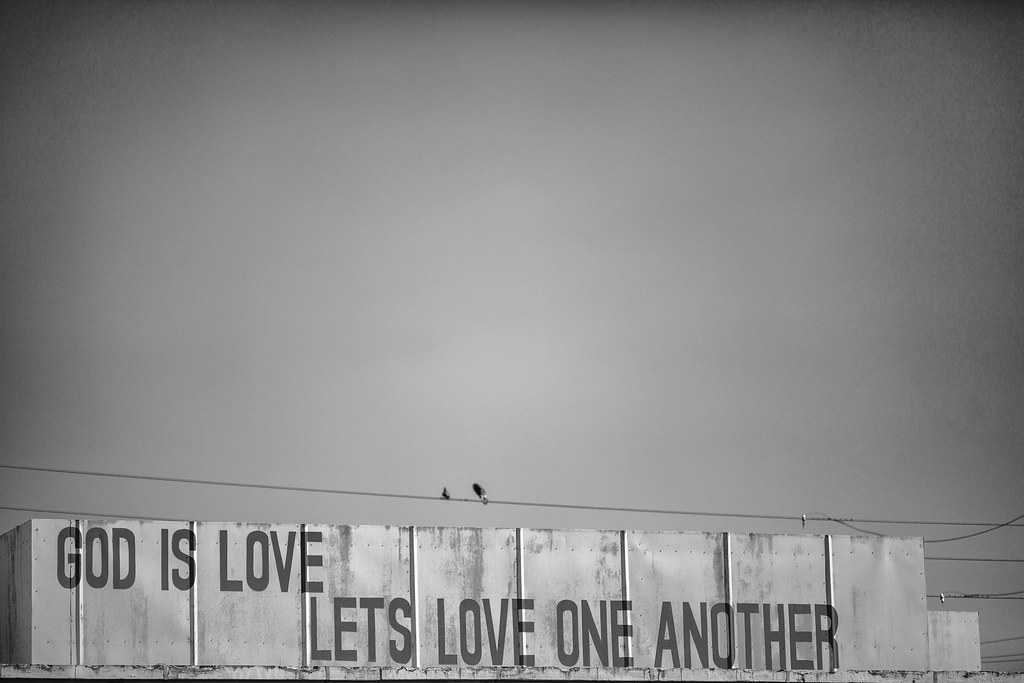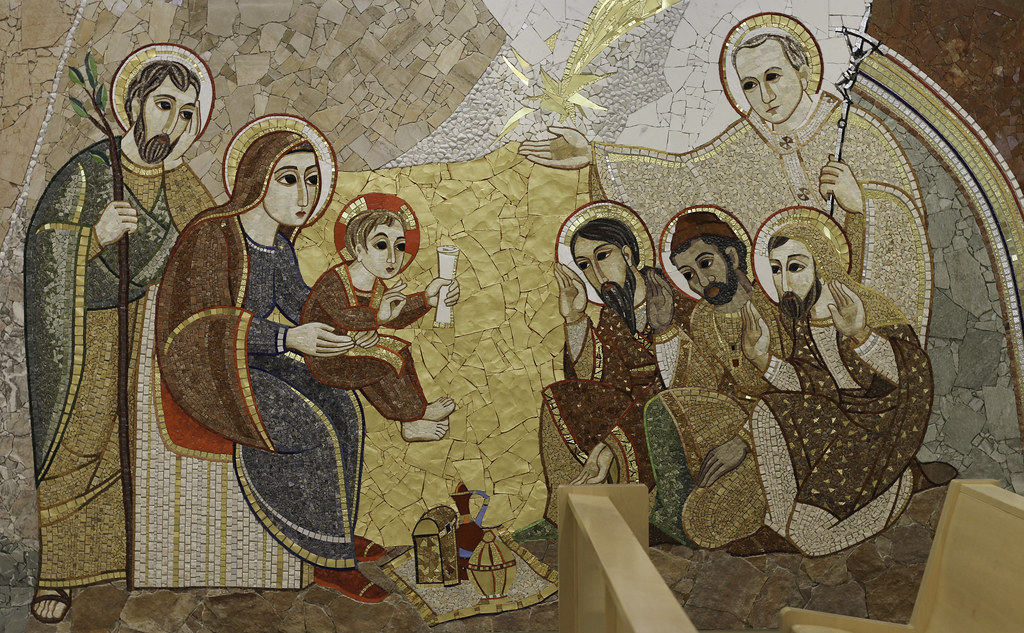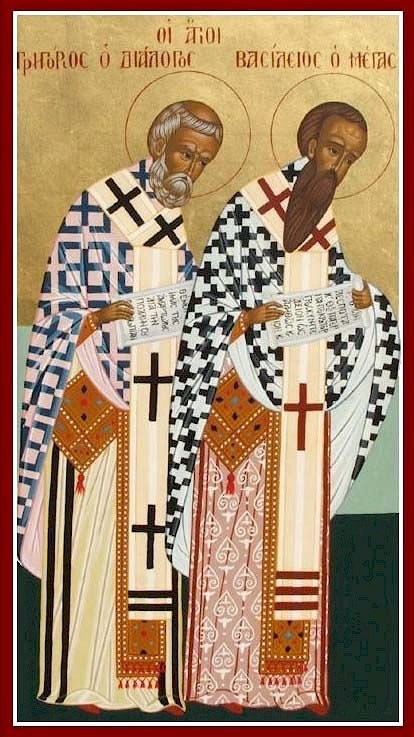Today’s readings
I’m going to make things pretty simple today. If someone asks you what my homily was about, you’ll be able to sum it up in just four words: “Walk toward the light.”
And that’s good advice, I think, for us who walk around in what can be a very dark world. Today’s first reading speaks of that darkness: “See, darkness covers the earth, and thick clouds cover the peoples…” We’re not talking about some kind of simple darkness that is cured by simply turning on a lamp. This darkness is pervasive, not just physical darkness, but a darkness that has psychological effects, and even affects communities and nations. When Isaiah speaks of the thick clouds covering the peoples, that’s what he means: “peoples” means nations.
And we don’t need to look too much farther than the newspaper or evening news to see that darkness. The year ahead of us might seem rather foreboding. The upcoming election promises to be as divisive as ever an election was in the history of our nation. January 1st saw the dawning of new laws in our state that negatively affect the unborn and the poor. We continue to see violence in our cities, and over the holidays, in places of worship. The wars raging in the Middle East, in Afghanistan, Iraq, Syria, and Africa, all over the world really, those are dark places for combatants and non-combatants alike. Christians in other lands find their lives in danger every day. There’s plenty of darkness to go around, and it may not seem like there’s enough light in all the universe to make it better, to illuminate that darkness, to help us to break free of it all.
There may be darkness in our own lives too. Maybe we have patterns of sin of which we cannot seem to break free, maybe there are family difficulties that cloud our day-to-day living, maybe there are old hurts among family or friends that prevent us from moving forward in grace. Even our own personal and spiritual lives can be such dark places at times.
Today’s Liturgy acknowledges all the darkness and invites us: “Walk toward the light.”
Because the light that we have to scatter all that darkness comes from God himself. Isaiah says again: “but upon you the LORD shines, and over you appears his glory.” A darkness as pervasive as the one that covers all peoples takes a very bright light to scatter it. Does this mean that all that darkness will go away immediately? Of course not. But it does mean that God has provided a way, lit up a path, for people of faith to take steps – baby steps if necessary – to walk toward that light. We see that light in the Church, through the Scriptures, in the Sacraments, in our celebration of the Eucharist, when we reach out to others in service, in our interaction with each other as people of faith. Those thick clouds may make it pretty hard to see at times, but ultimately they are no match for the bright light of the glory of the Lord.
Isaiah goes on to point out that all that light isn’t intended just for us. When we have approached the light, we need to share that light with others. “Nations shall walk by your light,” Isaiah says, “and kings by your shining radiance.” Having received the light of the glory of the Lord, we are meant to spread it over our corner of the world. We are meant to radiate that light as a beacon in a dark place, so that all peoples – all those peoples that are covered by those thick clouds of darkness – can see their way to the Lord too. We spread that light by changing our lives. We spread it by being people of integrity. We spread it by doing everything we can to reinvigorate our spiritual and devotional lives. We spread the light by paying it forward, by giving of ourselves, by having concern for those in our lives and those the Lord puts in our lives. We spread the light by reaching out to those in need.
And what is wonderful is that spreading the light never leaves us in the darkness. There is always more light to shine on us. Listen to Isaiah again:
Then you shall be radiant at what you see,
your heart shall throb and overflow,
for the riches of the sea shall be emptied out before you,
the wealth of nations shall be brought to you.
The glory of the Lord is never diminished by shining on others. In fact, when we share that light with others, we only receive more, so that our hearts are throbbing and overflowing, beholding all the riches that we could ever hope to find. We may find a talent we never knew we had, one that can reach others for Christ. We may find a new energy that comes to a spiritual life that was previously rather listless. We may find new challenges, new opportunities, and always new grace. The riches and wealth of our God are never exhausted.
All we have to do is walk toward the light.
The word “epiphany” means “manifestation.” Today, and in the next couple of weeks, we will see Christ’s Lordship manifested in a few different ways. Each of these epiphanies will call us to a deeper appreciation of who Christ is in our lives and a deeper reflection on our own discipleship.
The light that we walk toward today is very-likely life-changing. The Magi came to seek the light in today’s Gospel reading. All we get from Matthew is a description of the encounter. But we have no idea what the encounter did in the lives of those wise astrologers. We don’t know how it changed them, what it cost them, where it ultimately led them. We see that the light was not intended just for the Jews, but also for all of the nations, pagans and religious people alike. All could come to the light, all could be affected by the light, all could experience the true light of the world.
And in just the same way, we have no idea how walking toward the light will affect us. We don’t know how it will change us, what it will cost us, where it ultimately will lead us. All we know is that, coming to the light, we will be changed, with the promise of grace upon grace. Just as the Magi were led to return by another way, we too might find ourselves taking another way in our lives. Epiphany is not the end of the story; it is just the beginning for us. What difference will what is manifested to us today make in our lives? Will we accept the one who not only lies in a manger as a newborn, but will also be rejected? Throughout this liturgical year we will hear Jesus’ preaching, observe his works, follow him to his death and then experience his resurrection. We will be exposed to the light many times and in many wonderful ways. It will be a year of many epiphanies for us.
May this coming year find us walking toward the light countless times and in countless ways, and open to the many riches of grace that the Lord has in store for us. Walk toward the light!



You must be logged in to post a comment.